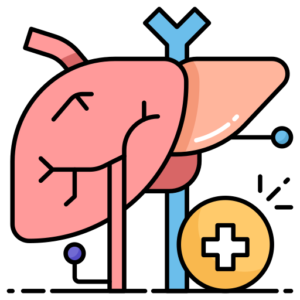The Total Cholesterol test measures the overall level of cholesterol in the blood. Cholesterol is a fat-like substance essential for building cells, producing hormones, and other vital functions. However, high levels of cholesterol in the blood can increase the risk of heart disease and stroke.
Purpose of the Test:
•Assess heart health: Screens for the risk of cardiovascular diseases (CVD) such as heart attacks or strokes.
•Monitor cholesterol levels: Tracks changes in cholesterol levels over time, especially for individuals on medication or lifestyle interventions.
•Part of a lipid profile: Often performed alongside HDL, LDL, and triglycerides for a complete lipid assessment.
Conditions Indicated by Abnormal Levels:
•High Cholesterol (Hypercholesterolemia):
•Increased risk of heart disease and stroke.
•May indicate conditions like hypothyroidism, obesity, or a high-fat diet.
•Low Cholesterol (Hypocholesterolemia):
•Rare but may be associated with malnutrition, liver diseases, or hyperthyroidism.
Key Notes:
•Fasting for 9–12 hours before the test is often recommended for accurate results.
•High total cholesterol should be evaluated alongside LDL (bad cholesterol) and HDL (good cholesterol) levels to assess cardiovascular risk.







Reviews
There are no reviews yet.